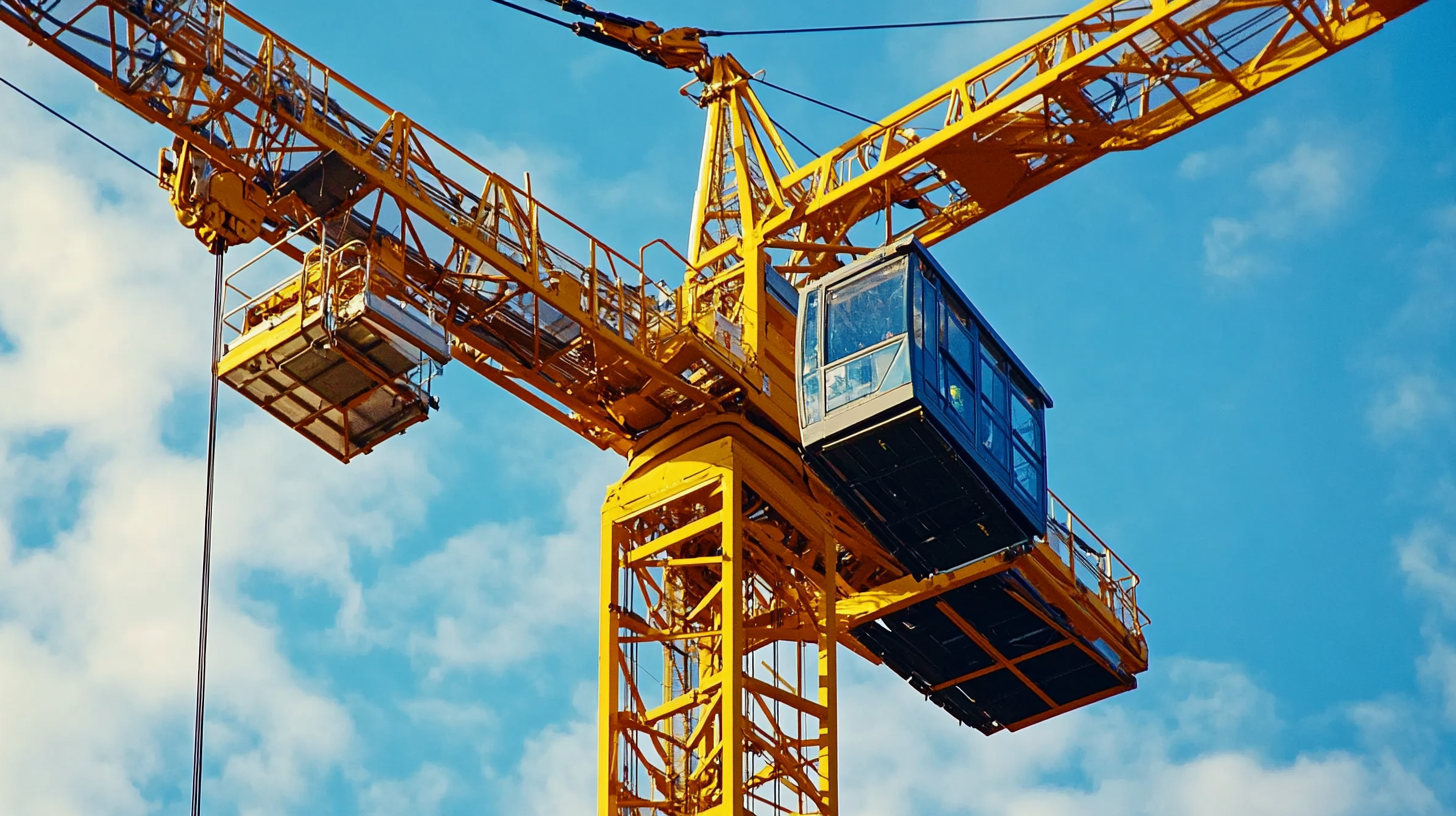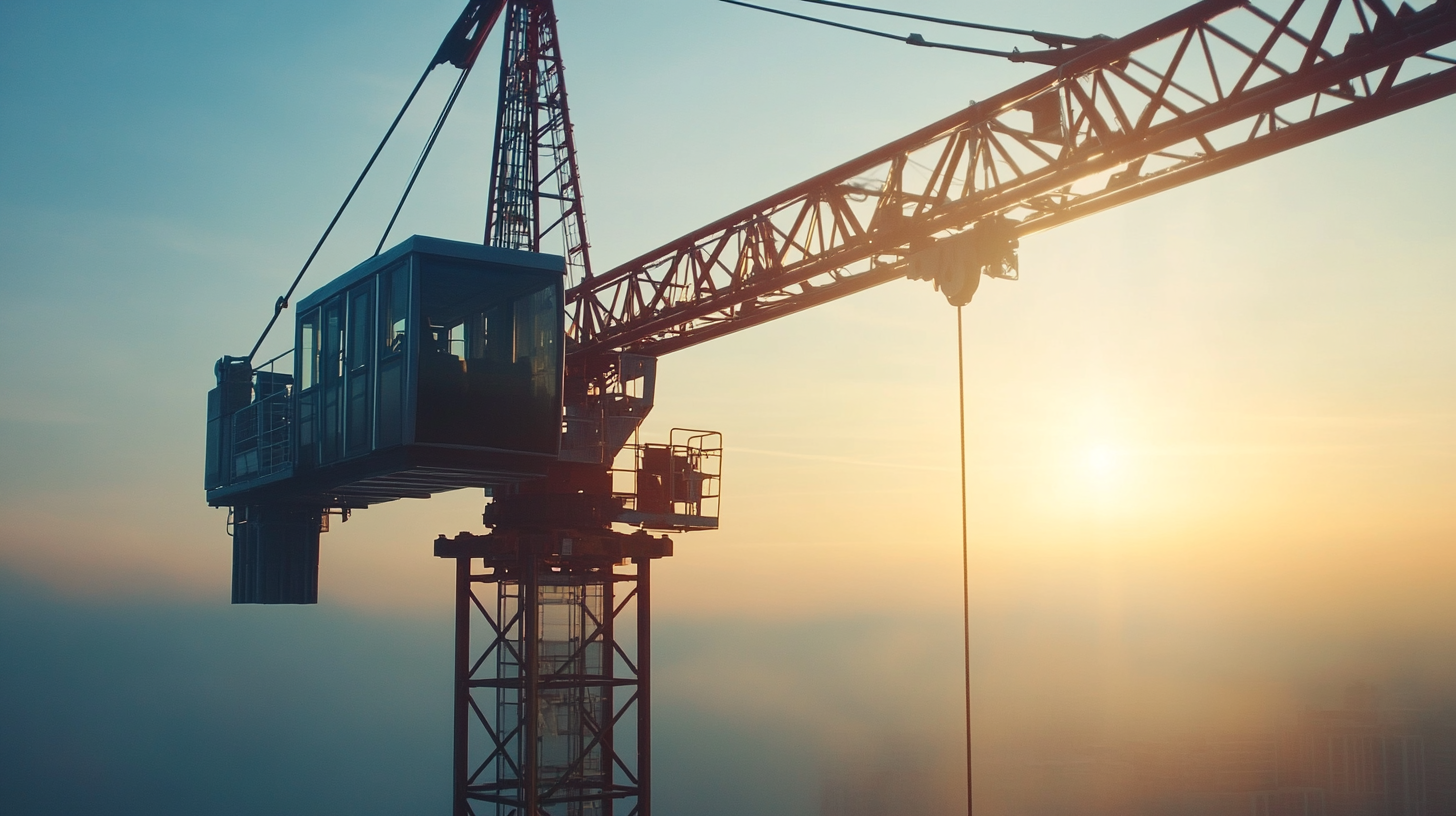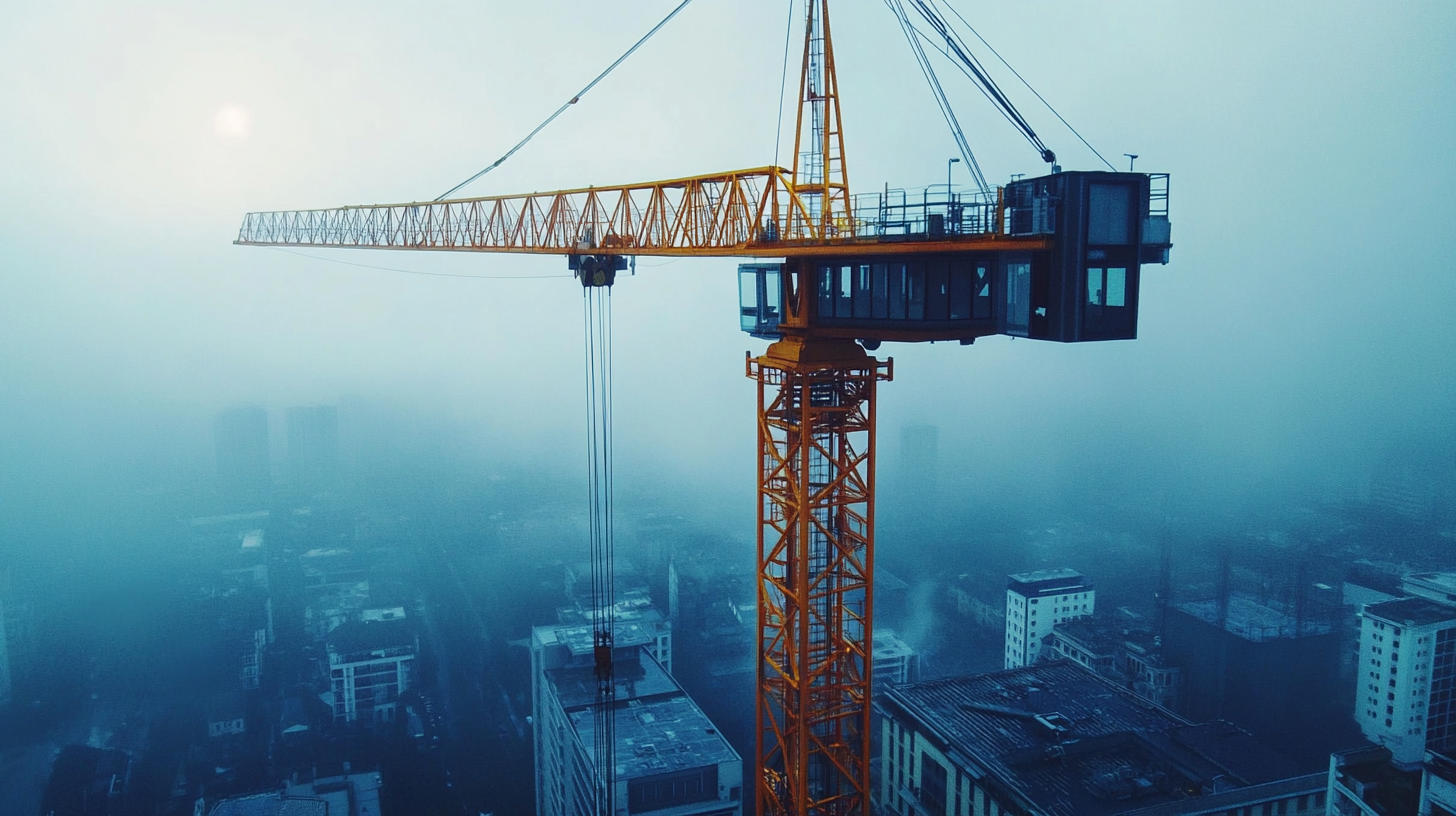 As we approach 2025, the construction industry is set to undergo significant transformations driven by technological advancements. Among the key players leading this innovation is the Liebherr Tower Crane, renowned for its scalability and efficiency. According to a recent report by the Markets and Markets research firm, the global tower crane market is projected to reach USD 5.3 billion by 2026, growing at a CAGR of 7.1% from 2021. The rising demand for infrastructure development and the shift towards automation are pivotal factors that will shape the industry landscape. Liebherr's commitment to integrating smart technology into their tower cranes not only enhances operational efficiency but also promotes sustainability, positioning them as a frontrunner in navigating these trends. Embracing a digital approach is essential for construction firms aiming to leverage the full potential of advanced machinery in an increasingly competitive market.
As we approach 2025, the construction industry is set to undergo significant transformations driven by technological advancements. Among the key players leading this innovation is the Liebherr Tower Crane, renowned for its scalability and efficiency. According to a recent report by the Markets and Markets research firm, the global tower crane market is projected to reach USD 5.3 billion by 2026, growing at a CAGR of 7.1% from 2021. The rising demand for infrastructure development and the shift towards automation are pivotal factors that will shape the industry landscape. Liebherr's commitment to integrating smart technology into their tower cranes not only enhances operational efficiency but also promotes sustainability, positioning them as a frontrunner in navigating these trends. Embracing a digital approach is essential for construction firms aiming to leverage the full potential of advanced machinery in an increasingly competitive market.
When it comes to the construction industry, having a reliable tower crane is paramount for project efficiency and safety. Liebherr, a leading manufacturer in the crane sector, offers not only top-notch equipment but also exceptional after-sales service. This commitment significantly enhances the value proposition for construction companies that invest in their tower cranes. The availability of trained professionals ensures prompt responses to any operational concerns and reduces downtime, allowing projects to stay on schedule.
One of the standout advantages of Liebherr's after-sales service is the comprehensive support system designed to assist operators throughout the entire lifespan of the crane. This includes routine maintenance checks, troubleshooting assistance, and access to original spare parts. By prioritizing customer service and offering tailored solutions, Liebherr mitigates potential issues that could arise during operation, thereby prolonging the life of their advanced technologies. This strong support network not only provides peace of mind but also fosters long-term partnerships with clients, solidifying Liebherr's reputation in the industry.

In the evolving landscape of the construction industry, maintenance costs are a critical factor that can significantly impact operational efficiency and profitability. As companies look for ways to optimize their expenses, the choice of equipment, particularly cranes, plays a vital role. Liebherr's tower cranes have distinguished themselves not just through advanced technology, but also via their cost-effective maintenance solutions. Their design minimizes wear and tear, and innovative monitoring systems enhance predictive maintenance capabilities, ensuring that downtime is reduced and productivity remains high.

Furthermore, with the global electric construction equipment market projected to grow substantially in the coming years, adopting reliable, low-maintenance lifting equipment becomes more enticing for businesses. By investing in a Liebherr tower crane, operators benefit from a well-engineered machine that requires less frequent repairs and part replacements, translating into lower long-term costs. The crane’s adaptability and high performance offers a strong advantage as the construction industry seeks to meet escalating demands while managing financial constraints.
In the ever-evolving landscape of the construction industry, optimizing equipment such as the Liebherr tower crane is essential for achieving maximum efficiency. One of the first steps in this optimization process involves regular maintenance and inspections. Ensuring that the crane is in peak operational condition not only extends its lifespan but also significantly enhances its performance on-site. Implementing a strict maintenance schedule and keeping a detailed log of inspections can help identify potential issues before they lead to costly downtimes.
Additionally, training operators thoroughly on the advanced features of Liebherr tower cranes plays a critical role in maximizing efficiency. Skilled operators are better equipped to maneuver the crane with precision, reducing the risk of material mishandling and improving productivity. Moreover, leveraging advanced technology such as load indicators and real-time monitoring software can empower operators to make informed decisions, enhancing overall safety and workflow on the job site. By combining rigorous maintenance practices with well-trained personnel and modern technology, construction companies can fully harness the capabilities of Liebherr tower cranes to meet the demands of 2025 and beyond.
The evolution of tower crane design is pivotal as we approach 2025, where innovations are poised to redefine efficiency and safety in the construction industry. According to a recent report by Grand View Research, the global tower crane market is expected to reach $19.3 billion by 2025, driven by urbanization and increased infrastructure investments. A significant trend is the integration of IoT technology, enabling real-time monitoring of crane operations, which can enhance productivity by up to 25% while reducing maintenance costs. This shift towards smart technology not only promises to streamline operations but also improves safety measures on site.
Moreover, with sustainability becoming a cornerstone of modern construction practices, manufacturers are innovating with eco-friendly materials and designs. Liebherr, for instance, is leading the charge with its commitment to reducing carbon footprints through energy-efficient machines and recycling initiatives. A study from Mordor Intelligence indicates that green construction practices are expected to grow by 9.5% annually, highlighting the industry's transition towards more responsible operational methods. As we navigate through 2025, the adoption of these technological advancements and sustainability efforts will be essential for businesses aiming to remain competitive in an increasingly demanding market.
As the construction industry evolves, the demand for advanced lifting solutions increases, emphasizing the importance of customization in crane technology. Liebherr Tower Cranes have gained recognition for their adaptability, allowing businesses to tailor the equipment to specific project requirements. According to the 2023 World Construction Report, the global tower crane market is expected to reach $4.4 billion by 2026, driven by the need for efficient, robust lifting solutions in urban construction.
Customizations for Liebherr Tower Cranes can include varying boom lengths, increased lifting capacities, and specialized rigging options to handle diverse materials. This level of adaptability not only enhances operational efficiency but also improves safety on job sites. The increased focus on sustainability in the construction sector further necessitates these tailored solutions, which can optimize performance while minimizing environmental impact. A report by Global Market Insights predicts that the sustainable construction market will exceed $3.5 trillion by 2028, highlighting the importance of innovative technologies like customized cranes in meeting industry demands.
